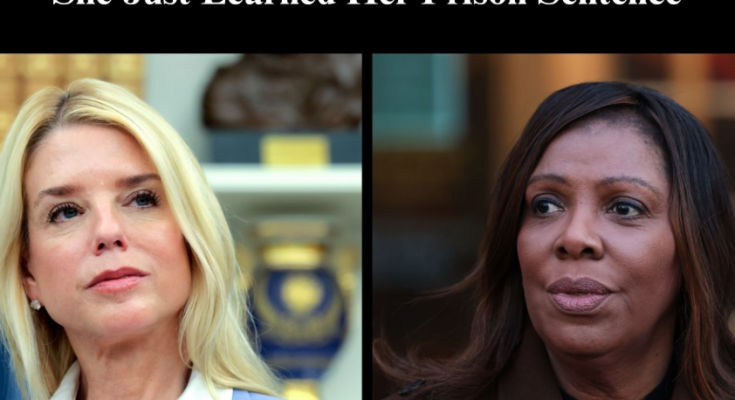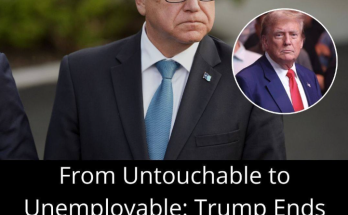
This article may contain commentary
which reflects the author’s opinion.
Federal prosecutors on Friday described the criminal case against New York Attorney General Letitia James as a “garden variety mortgage fraud prosecution,” urging a judge to allow the case to proceed. The federal indictment charges James with two counts: bank fraud and making false statements to a financial institution. If convicted on both counts, she faces up to 60 years in prison and fines totaling up to $2 million.
In a filing, government attorneys pushed back against James’s legal team, which has argued the charges should be dismissed because the case was initiated to punish one of President Donald Trump’s most prominent critics.
The prosecution was brought by U.S. Attorney Lindsey Halligan, whom Trump appointed. Halligan filed the case just weeks after Trump publicly called for criminal charges against several of his political opponents, despite reported objections from some career prosecutors within her office.
But there has been no evidence presented by James’ defense team to prove she’s been maliciously prosecuted for being a political opponent of the president.
By comparison, she ran her first campaign for New York AG in 2018 on a platform to ‘get Trump,’ which she later did by successfully prosecuting him on similar mortgage fraud charges.
She initially won a massive $454 million fine from him in the civil case but a court later found that wildly excessive and dramatically lowered it. And she is currently leading several lawsuits against the Trump administration.
“Federal courts must not allow defendants to escape a facially valid indictment supported by evidence because of public disputes between elected officials,” prosecutors wrote in Friday’s court filing.
Responding to claims that the case is a vindictive prosecution, federal prosecutors acknowledged that Trump’s public comments about James — including remarks that “she’s very guilty” — have fluctuated from “disdain to deference.”
However, they argued that the decision to pursue an indictment was made solely by Halligan, ABC News reported.
“The remarks of presidents and state attorneys general are important, but they do not have any bearing on the evidence on which the United States and the grand jury have relied in proceeding with indictment,” federal prosecutors wrote.
Prosecutors sought to distance the case from Ed Martin, the special attorney for mortgage matters within the administration, who, before the indictment, had participated in a newspaper photo shoot in front of James’ residence and urged her to step down.
Prosecutors sought to distance the case from Ed Martin, the special attorney for mortgage matters within the administration, who, before the indictment, had participated in a newspaper photo shoot in front of James’ residence and urged her to step down.
The attorneys argued that Martin’s highly unusual target letter “discloses the government’s perspective on how Defendant can timely accept responsibility and demonstrate respect for the law,” and does not demonstrate vindictiveness, ABC noted.
“Defendant makes much of the involvement of Ed Martin. Martin is not the United States Attorney, he did not sign the Indictment, and he was not the decision-maker in this process,” the filing said.
James has pleaded not guilty to one count of bank fraud and one count of making false statements to a financial institution. Prosecutors allege she misrepresented a property she bought in Norfolk, Virginia, claiming it was a second home rather than an investment property in order to secure a lower mortgage rate. James has said she purchased the home in 2020 for her great-niece and allowed her and her children to live there rent-free.
In their filing on Friday, prosecutors argued that the case is not a politically motivated effort to target one of Trump’s most vocal critics, but instead a routine matter, calling it a “garden variety mortgage fraud prosecution.”
The submission contained what the prosecutors allege is a text message from James dated 2024, which they claim shows she was aware that her actions were improper.
“I do not want to take deduction,” the message says. “It looks suspicious and I need to do everything according to the tax code.”


